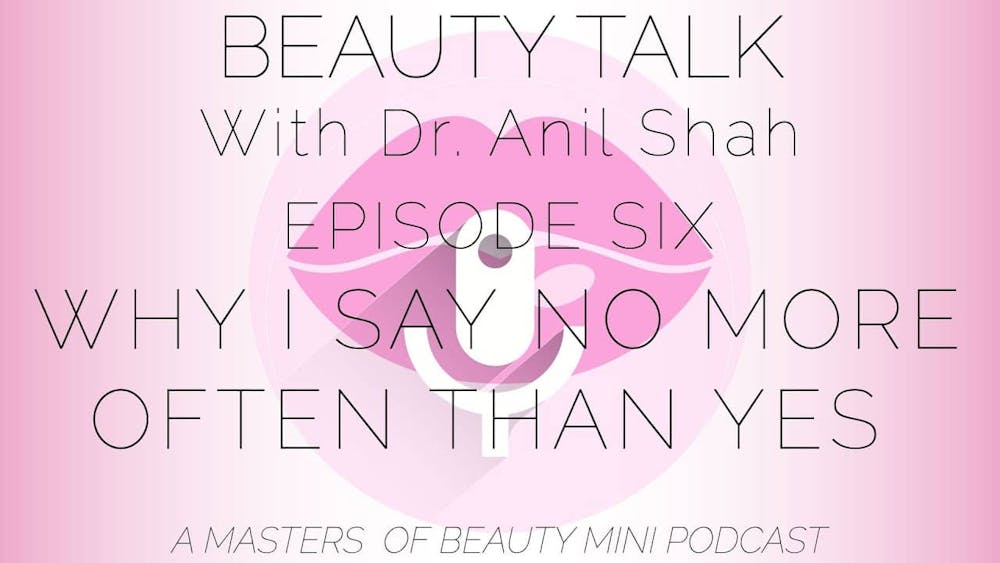This audio podcast has been transcribed using an automated service. Please forgive any typographic errors or other transcription flaws.
So we’re talking about why I say no. So often to patients about surgery, first of all, a lot of patients aren’t candidates for surgery. And so if you’re not a candidate for surgery, you know, if you, if you look good, if you have an existing, uh, nose, neck, face, eyes, hair, whatever you have and you don’t need it, why do it? And if everything’s fine, don’t do it. Um, I say this to lots of patients. Um, I see a lot of 30 year old patients, uh, sometimes 40, sometimes 50 year old patients who want a facelift who don’t need it. And if they can benefit from something else, maybe they’re looking for something else and some other answer, and maybe they, the answer is just, they need that reassurance that they don’t need anything. Um, now I say that, um, sometimes to some of these patients and later on, they end up getting these procedures and then asking me, why did I do this procedure?
So, um, but oftentimes lots of patients don’t need it. The second reason I don’t say yes to everyone is that not everyone should get surgery because it’s, it’s, it’s a stress that your body and your mind has to handle, you know, change whether it’s positive or negative in parts of stress on us. And for some of us, it’s not, it’s not something we can handle for some patients to have a lot of stresses in their life. And if you put this extra stress on them, this extra burden, it might be something that kind of puts them over the top. So in some ways you’re talking to a patient and saying, Hey, I don’t know if you’re gonna be able to handle this with any procedure. Um, and again, if you watch this, whether it’s me, or even if you watch TV shows like botch, not every procedure goes well.
Sometimes you might have patients who have, might have more swelling. Um, sometimes you might see patients that might not be perfect. No one’s ever perfect after surgery. And so for patients who are hoping for this miracle and they don’t get a miracle, they’re not gonna handle surgery. Well, the third time I don’t like I reason I say no is if patients have difficulty articulating what they want, and this is difficult because if patients kind of come in with a fluid goal of not sure what they want, it could be difficult to make those patients happy. And imagine if you were looking to do a kitchen for your house and say, I have no idea what I want. Well, maybe you need some, a push in the right direction to say, maybe I want a modern kitchen. Maybe I want a, um, more traditional kitchen. But if you’re still after seeing different directions, have no idea what want for your face.
Um, you might not be a good candidate and maybe you need more time to think about it, or maybe it’s just not something that’s right for you. So, um, I say no, a lot to patients. Um, and I don’t mean to say no in a way that’s hopefully not saying no in a way to patients that’s disrespectful. It’s more about saying, Hey, guess what? You might not be a candidate for multiple reasons. And if you’re not a candidate for surgery, that’s okay. Um, that means I’m trying to save you the, um, uh, the anxiety of having, um, surgery for any of those reasons. And again, um, my goal is to do what’s best for you as the patient. And there’s a financial reason for me to say yes, but more often than not, I say no.

